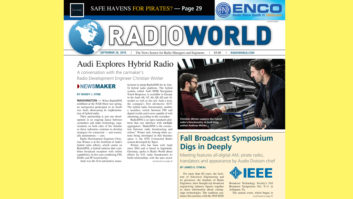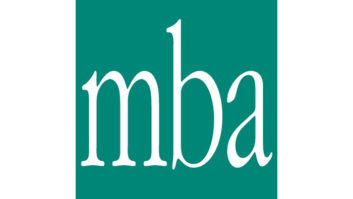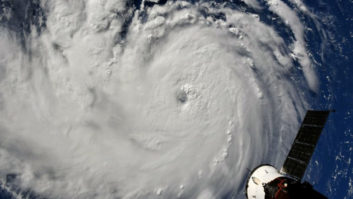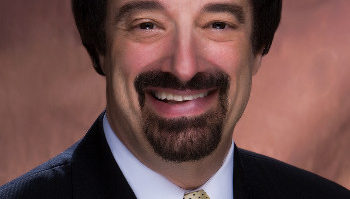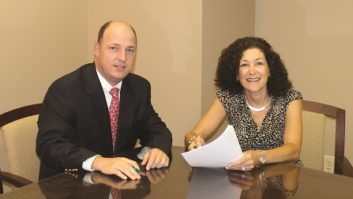
The author is president emeritus and senior advisor for the Multicultural Media, Telecom and Internet Council. Radio World welcomes opinion and points of view on important radio broadcast industry issues.
When I read the press clips and commentary about radio pirates, I want to jump up and down, wave my arms, and scream, “How can everyone be missing the most important fact about them?”
And I don’t care if I look crazy putting it in all caps, but the part most people miss is: “ALMOST ALL PIRATES CHOOSE EXCLUSIVELY TO SET UP ILLEGAL, UNLICENSED STATIONS TO TARGET AND EXPLOIT LARGE MARKET AFRICAN AMERICAN AND LATINO NEIGHBORHOODS.”
Just what “services” do pirates provide to these neighborhoods?
They play the “club” version of records — the versions with the four- and 12-letter words that are banned by the FCC on licensed radio stations, but are easily accessible to young children on pirate stations; and
And they provide an audio stream free of bad news, bad weather, or bad emergencies — because they don’t broadcast news, weather or EAS alerts.
As a result, individuals often listen to their local “underground” stations, as they’re sometimes referred to, with no awareness of how they hurt their own communities.
[Read: Pirate Radio Bill Formally Introduced]
And at whose expense are these “services” delivered? Primarily minority broadcasters, who built their companies through years of hard work — providing genuine value, supporting their communities, and playing by the rules. Pirates say “let me steal a piece of this.”
At MMTC, we’ve encountered a pirate or three. We’ve learned how they think. They are neither crazy nor stupid. What they are are opportunists. Old fashioned capitalists, but not in a good way. And smart ones.
They know, to a moral certainty, that if they set up shop in Beverly Hills, they’d be cuffed or shackled before they laid down four of George Carlin’s “Seven Dirty Words.” They’d be thrown under the jail.
A bunch of years ago, I met a pirate who was trying to “get legal” by transitioning into LPFM. He had accumulated a little sum of money “serving” Black communities in Harlem and Brooklyn, with no FCC license. Chatting with him, my ears perked up, because (1) he didn’t know a lot of black people; (2) he hadn’t grown up in those neighborhoods; and (3) except for who Michael Jackson was, he knew virtually nothing about black music.
But it turned out that he understood black social injustice quite well. I found this out when I asked him, “Why’d you choose black neighborhoods to broadcast from?”
And this dude flat out told me: “David, they’re the safest place for a ‘Part 15 broadcaster.’ [That’s what some pirates call themselves, I kid you not. Real Part 15 broadcasters keep to their effective service range of about 61 meters. So I call BS, but digress.] And why is it so safe for us Part 15 guys? Because the government doesn’t care about black and Spanish neighborhoods. They don’t do housing code enforcement there. They don’t fill up the potholes there. They’re in no hurry to answer 911 calls there. They don’t provide equal schools there, or even safe schools. So, do you really think the government is going to enforce the Communications Act there?”
Excellent point!
It goes to the reason we call a pirate a “pirate.”
Seaborne pirates carefully choose targets of opportunity such as container ships with small staffs in poorly-patrolled waters, such as those off the Somali coast. Broadcast pirates, emulating their seaborne cousins half a world away, carefully choose, as targets of opportunity, the neighborhoods they think the FCC doesn’t care about.
Now, let’s talk about what you’re reading this commentary to find out: How can the FCC shut down, punish, and disincentivize a pirate?
Let’s start with ginormous forfeitures. They won’t work. Think about it: pirates generally aren’t “Trump-scale” rich. Mostly, they have little to lose, so they aren’t going to be motivated by an unfathomably large forfeiture that can never be collected. They have no way to pay a $75,000 fine, so why would they be even more frightened by having to pay a $750,000 fine?
What about confiscating electronic gear? Really good idea, because it’s unique. It takes days to replace and assemble tubes, diodes, and cart machines into an unlawful radio operation. Confiscating gear strikes at the common strategy of pirates — get shut down at 101 Oak Street on Monday, then light up a transmitter at 102 Spruce Street on Tuesday.
What about going after landlords? Well-intended, but a bad idea. It’s unfair as well as detrimental to the low-income housing marketplace. A landlord doesn’t have any notice that the tenant is operating a one-room radio station on premises — any more than the landlord would know if the tenant is maintaining a one-room meth lab. Turning pirate enforcement over to landlords — and punishing the landlords if they overlook a pirate – would require landlords to pay someone to inspect the premises every few days – thus raising housing costs, decreasing housing quality, or both.
Similarly, small, local advertisers can’t be expected to know that a pirate’s operation violates the Communications Act. If you’re reading this in Radio World, you’re already too close to the subject matter. We radio geeks sometimes forget that maybe 90% of the public has never heard of the Communications Act (and most of the other 10% couldn’t care less). On the other hand, a large national advertiser that buys spots on a pirate station should know better and ought to be sanctioned.
For its part, Congress needs to do two things to hit pirates hard:
First, it needs to restore cuts to the FCC’s budget that brought about the closure of critical field offices. Three years ago, the FCC operated 24 field offices; today, it operates only 13. It needs 30!
Second, the FCC needs to be given the authority to take pirates to court on its own, rather than depend on the Department of Justice to bring lawsuits on the FCC’s behalf. Pirates rank very low among the DOJ’s litigation priorities. It never made sense for an agency with the top-level expertise of the FCC’s Office of General Counsel to have to depend on the DOJ to do its enforcement litigation.
Finally, there’s one thing the FCC can do right now: Chairman Pai, or any of the commissioners, should appear at one of the national multicultural civil rights organizations’ conventions and give a speech that says approximately as follows:
“Radio World just published a commentary that says that pirates think the government doesn’t enforce the law in multicultural neighborhoods — making those neighborhoods a safe haven for radio piracy. That’s not going to be true on my watch,” and then lay out exactly what the commission is going to do to run down, capture, and prosecute pirates with equal zeal no matter whose neighborhood pirates choose to exploit.
If you have additional thoughts, criticisms, ideas, and prayers on how to take down pirates, please send them along — [email protected]. Let’s make 2018 “The year radio pirates slithered under a rock and stayed there.”


